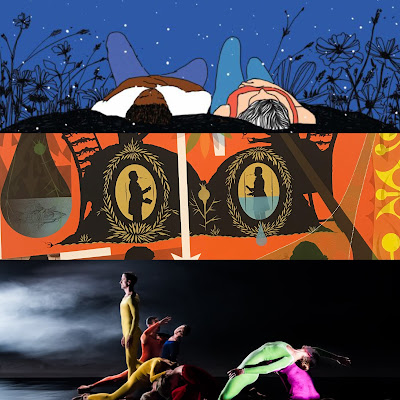ROUND-UP January 1-7, 2020
Happy new year, readers! Here are some fresh new writings for 2020, where I have to get used to not typing "2019" at the end of the sentence... (Don't forget to check out my year-end wrap-up here!)
- "Lari Pittman: Declaration of Independence," this is tomorrow, January 1, 2020.
"The works on display in ‘Declaration of Independence’ are not fully landscapes, history paintings or depictions of the human figure, but they’re certainly not totally abstract. There are recognisable objects in space that float close to the surface of the picture plane; there are decorative patterns and architectural flourishes; there is text in a variety of fonts and styles; there are sometimes disembodied body parts that are presented in various degrees of eroticism. There is always an eye for bright colour, and a penchant for twisting the decorative into something unsettling and chaotic. It’s a testament to the strength of the show that it not only introduces us to Pittman’s incredible range, but gives us enough depth to familiarise us with his recurring motifs and hallmarks, allowing us to find a thread through the galleries."
- "Cunningham," Moviejawn, January 3, 2020.
"At times, there’s a curious disconnect between these roundabout ways we learn about Merce Cunningham, the man, and the development of his idiosyncratic dance and choreography techniques, and the fluidity with which the actual restagings of his works are presented. I don’t know if I could, after watching Cunningham, tell you much biographical information about him—but education doesn’t really seem to be the point of the film. It’s more about establishing a rhythm and sequence: here will be a segment consisting of archival material, then a restaging of the particular dance mentioned in the material, and on and on, all in chronological order."
- "Book Review: “You Are the Everything” by Karen Rivers," The Young Folks, January 7, 2020.
"It’s a testament to the strength of Karen Rivers’ writing that You Are the Everything, which takes place entirely in the second person (and present tense), that you as the reader understand the disorientation as an effect of the writing style as well as the machinations of the plot and the unique idiosyncrasies of the protagonist."

Comments
Post a Comment